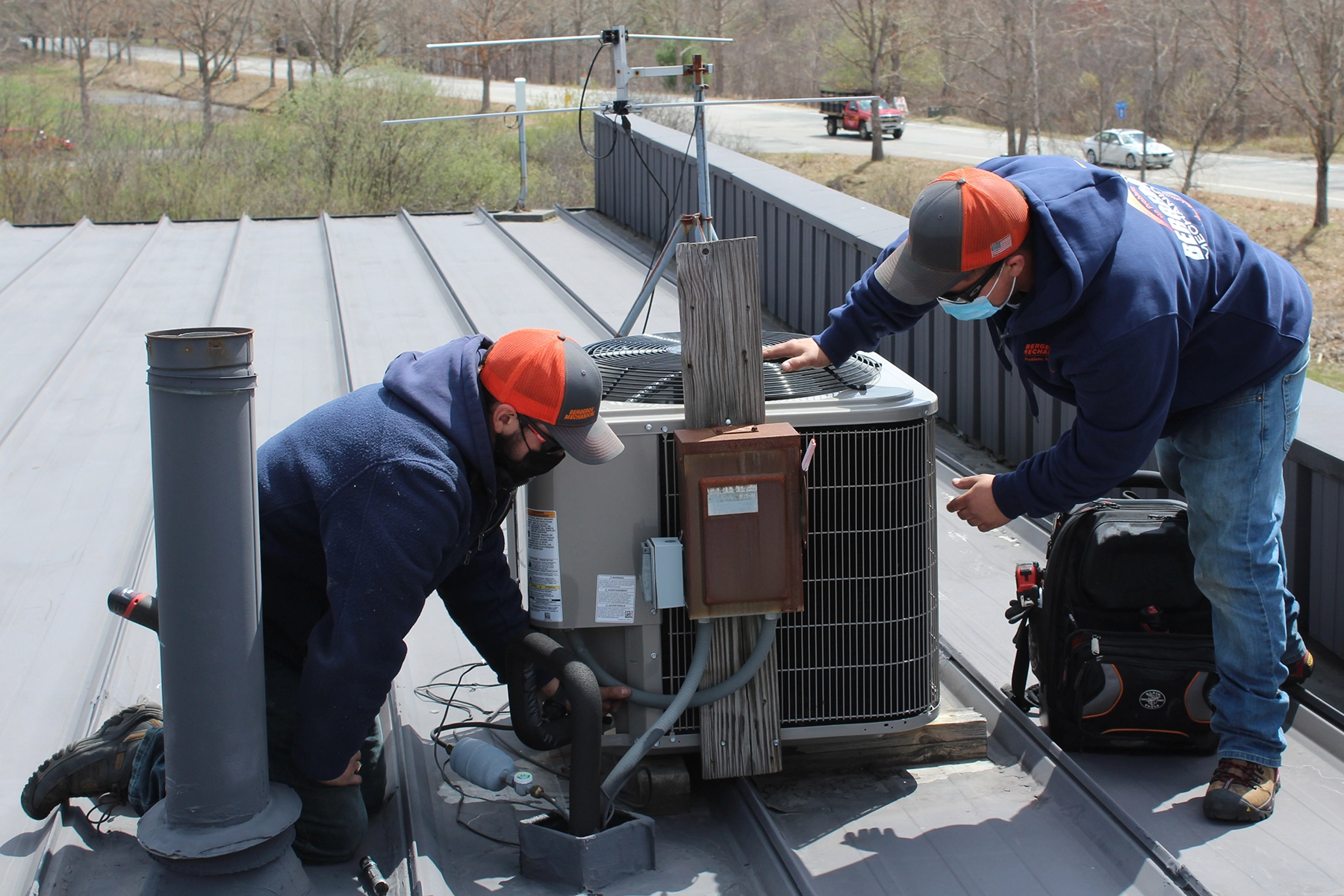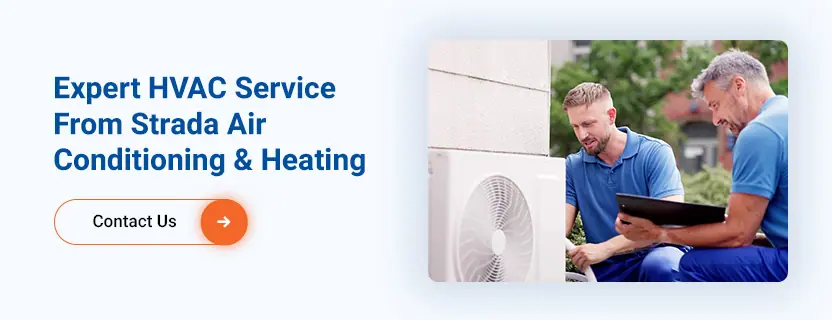The Significance of A/c Installment: Secret Considerations for a Comfortable Indoor Environment
The installation of a HVAC system is a critical element in achieving a comfy and energy-efficient interior environment. Variables such as the suitability of the system for details building demands, appropriate sizing to prevent ineffectiveness, and the expertise of specialists for a quality installment play pivotal functions. The adoption of sophisticated modern technologies can considerably boost system performance.
Selecting the Right System

When picking a HVAC system, it is essential to assess the capacity required to properly warmth or cool down the area without overworking the system, which can lead to increased wear and functional expenses. Consulting with an expert heating and cooling professional can provide beneficial understandings into selecting a system that straightens with both the expected usage and the building style patterns of the building.
In addition, thinking about the integration of clever innovation can enhance system monitoring and tracking, providing better control and prospective expense savings. By diligently examining these elements, one can ensure the option of a heating and cooling system that not only satisfies immediate requirements yet additionally adds to lasting functional sustainability and owner convenience.
Comprehending Energy Effectiveness
Recognizing power efficiency is important when thinking about an A/c installment, as it straight influences both the ecological impact and the functional prices of the system. The performance of a Cooling and heating system is typically indicated by ratings such as SEER (Seasonal Energy Performance Proportion) for air conditioners or AFUE (Yearly Gas Use Performance) for heaters.

Purchasing an energy-efficient HVAC system not just translates to set you back savings yet likewise adds positively to ecological conservation by reducing greenhouse gas emissions. Furthermore, many territories offer motivations or rebates for the installation of high-efficiency systems, further boosting their financial charm.
When evaluating power performance, think about innovative features such as variable rate electric motors, smart thermostats, and zoning abilities. These advancements enhance the system's capability to readjust to varying demand, therefore optimizing energy usage. It is crucial to consult with cooling and heating professionals who can give insights into the most effective alternatives tailored to particular climate problems and use patterns, ensuring maximum performance and comfort.
Relevance of Proper Sizing

Alternatively, an undersized HVAC system will certainly battle to get to the desired temperature level, especially throughout extreme climate conditions. This can cause continuous procedure, resulting in greater energy prices and potential getting too hot of system components. Furthermore, poor sizing can result in irregular temperature circulation, causing specific locations of a building to be too amazing or also warm.
To accomplish the proper sizing, an extensive lots calculation is necessary. This involves assessing different variables such as the building's square video footage, insulation degrees, home window types, and local climate problems. By properly determining the heating and cooling down demands of a room, heating and cooling experts can advise systems that ensure efficient operation, decreased power intake, and boosted interior convenience.

Making Certain Top Quality Setup
A seamless Cooling and heating setup is the cornerstone of a system's long life and performance. This specialist ought to have extensive expertise of diverse systems and be experienced at examining the specific requirements of the building.
Appropriate installation exceeds plain placement of tools. It involves specific calibration to guarantee optimum airflow, effective power consumption, and consistent temperature level distribution. This consists of accurate ductwork setup, making certain connections are leak-free and secure, which is vital for keeping system efficiency and interior air top quality.
Furthermore, the application of innovative diagnostic tools during installment can detect prospective problems early, protecting against costly repair services and expanding the life-span of the system. The contractor ought to additionally make certain that all components are compatible and that the system follows regional building regulations and laws.
Regular Maintenance Practices
As soon as the structure for a high-performing a/c system is established through quality installment, the emphasis must move to regular upkeep techniques to make sure continued efficiency and integrity. Regular maintenance not only extends the life-span of the system yet likewise enhances interior air high quality, decreases energy intake, and stops costly repairs. Crucial upkeep tasks consist of on a regular basis altering air filters, cleaning evaporator and condenser coils, and checking the system for obstructions or hop over to these guys leaks.
Air filters need to be replaced or cleansed every one to three months, depending upon usage and ecological elements. This straightforward task can significantly boost air flow and system performance (emergency ac service Brownwood TX). Cleaning the evaporator and condenser coils stops dirt accumulation, which can impede warmth absorption and air conditioning ability. Furthermore, professional service technicians should inspect redirected here the system yearly, examining for refrigerant levels, electrical connections, and total system performance.
Interest to ductwork is also important; securing and cleansing ducts frequently stops air loss and contamination. Carrying out an upkeep timetable makes certain that minor issues are dealt with before they intensify, securing the system's operational stability. By sticking to these maintenance methods, house owners can optimize their cooling and heating system's capability and keep a comfy interior setting year-round.
Verdict
By picking a suitable system customized to particular structure requirements, recognizing power efficiency, and ensuring correct sizing, ineffectiveness can be decreased. The involvement of experienced service providers guarantees top quality installation, while the combination of innovative technologies improves system efficiency and monitoring.
A number of kinds of Heating and cooling systems are readily available, consisting of split systems, heating and air conditioning contractors hybrid systems, duct-free systems, and packaged home heating and air systems, each with distinctive benefits and limitations.
Comprehending power efficiency is vital when taking into consideration a HVAC setup, as it straight influences both the ecological impact and the operational costs of the system. The effectiveness of a Cooling and heating system is typically indicated by scores such as SEER (Seasonal Energy Effectiveness Proportion) for air conditioners or AFUE (Yearly Gas Application Efficiency) for furnaces (Brownwood TX HVAC Contractor).Once the foundation for a high-performing A/c system is established through high quality setup, the focus ought to move to routine maintenance practices to ensure ongoing performance and integrity. Furthermore, expert specialists ought to inspect the system annually, examining for cooling agent degrees, electrical links, and total system efficiency